This is a simple ~140RPM (no load), DC planetary gearmotor. This motor is great for various applications such as robotics, electric locks, household automation, and small actuators.
The supply voltage range is 6VDC - 24VDC with the polarity marker at the base of the motor. The planetary gear box, mounted on top of the motor housing, gives this motor a relatively large stall torque for its size. The overall body of the motor is made of metal, with the exception of the set of planet gears on the first input gear set, which are plastic.
This planetary gearmotor has an over all body dimension of 76.1mm length with a 22mm diameter while the drive shaft is 12mm in length and 6mm in diameter.
- Body Dimensions:
- 22mm diameter
- 76.1mm overall length
- Drive Shaft Dimensions:
- 12mm length
- 6mm diameter
- Planetary Gears:
- Material: Plastic and Metal
- Gear Ratio: 1/84
- Rated Load: 1.5kgf-cm
- Min. Stall Torque: 5.6kgf-cm
- Motor:
- Operating Voltage Range: 6VDC ~ 24VDC
- Bi-direction
- Graphite motor brush
- Max Stall Current: 1.3A
Planetary Gearmotor - 140RPM Product Help and Resources
1 of 1 found this helpful:
Motor Driver
You'll probably be better off using a motor driver that can provide sufficient current for the planetary gearmotor like the Ardumotor Shield.
Core Skill: Soldering
This skill defines how difficult the soldering is on a particular product. It might be a couple simple solder joints, or require special reflow tools.
Skill Level: Noob - Some basic soldering is required, but it is limited to a just a few pins, basic through-hole soldering, and couple (if any) polarized components. A basic soldering iron is all you should need.
See all skill levels
Core Skill: Robotics
This skill concerns mechanical and robotics knowledge. You may need to know how mechanical parts interact, how motors work, or how to use motor drivers and controllers.
Skill Level: Competent - You may need an understanding of servo motors and how to drive them. Additionally, you may need some fundamental understanding of motor controllers.
See all skill levels
Core Skill: DIY
Whether it's for assembling a kit, hacking an enclosure, or creating your own parts; the DIY skill is all about knowing how to use tools and the techniques associated with them.
Skill Level: Competent - You might need to break out the power tools. Nothing beyond a power drill or rotary tool should be required, but you might have a hard time with just a screwdriver and hammer. Cutting holes into plastic or metal might be required.
See all skill levels
Core Skill: Programming
If a board needs code or communicates somehow, you're going to need to know how to program or interface with it. The programming skill is all about communication and code.
Skill Level: Noob - Programming will be limited to basic drag and drop interfaces like ModKit or Scratch. You won't be writing code, but you will still need to understand some basics of interfacing with hardware. If you?re just using a sensor, it's output is analog.
See all skill levels
Core Skill: Electrical Prototyping
If it requires power, you need to know how much, what all the pins do, and how to hook it up. You may need to reference datasheets, schematics, and know the ins and outs of electronics.
Skill Level: Competent - You will be required to reference a datasheet or schematic to know how to use a component. Your knowledge of a datasheet will only require basic features like power requirements, pinouts, or communications type. Also, you may need a power supply that?s greater than 12V or more than 1A worth of current.
See all skill levels
Comments
Looking for answers to technical questions?
We welcome your comments and suggestions below. However, if you are looking for solutions to technical questions please see our Technical Assistance page.
Customer Reviews
5 out of 5
Based on 1 ratings:
quality product past my expectations
I was looking for a dc motor that would run very slowly. This almost fit and did fit what I was looking for. Although it is a 24 volt motor, it will still run down to about 6 volts which will slow it down more. Love it.

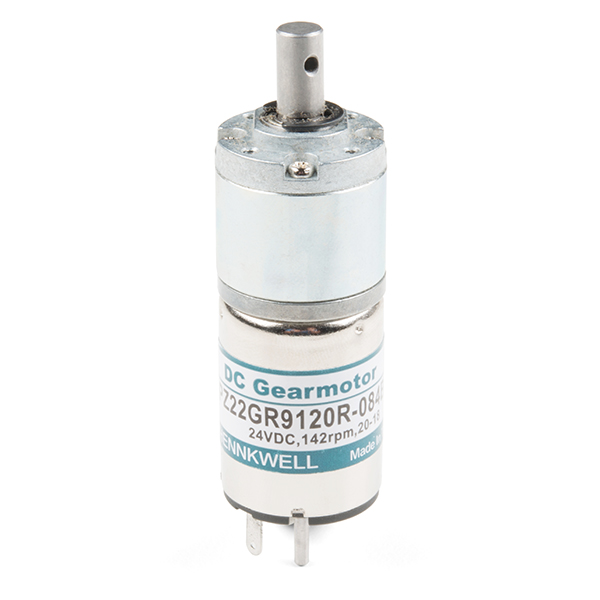

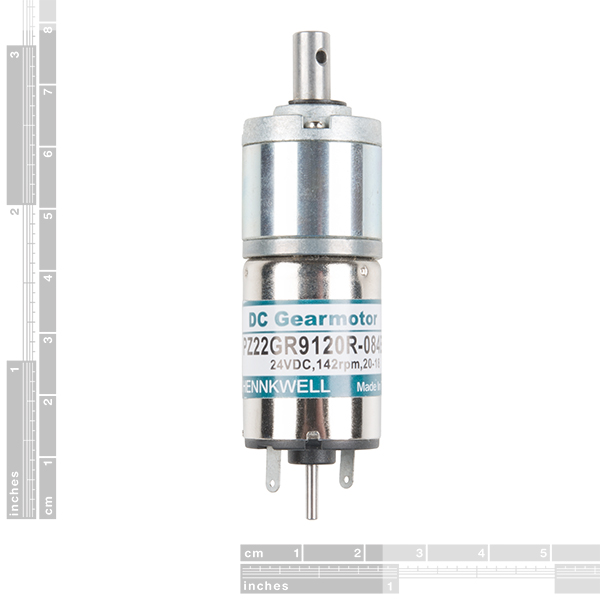

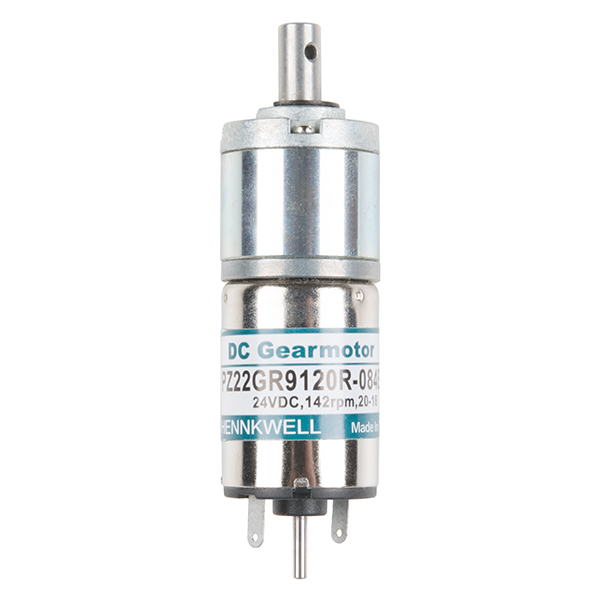

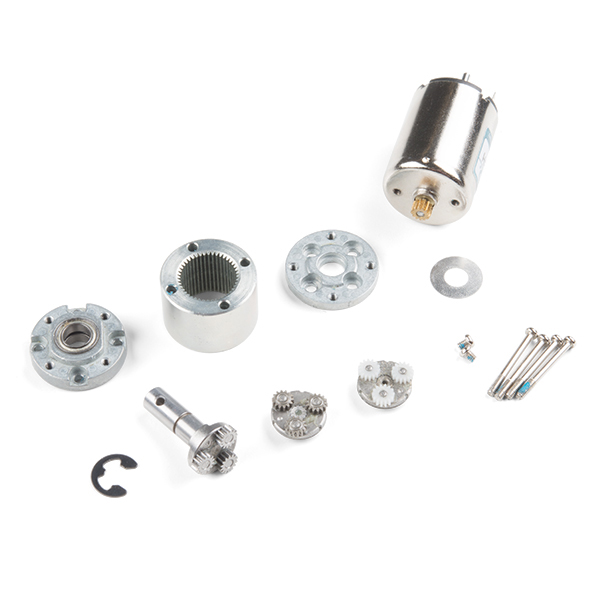

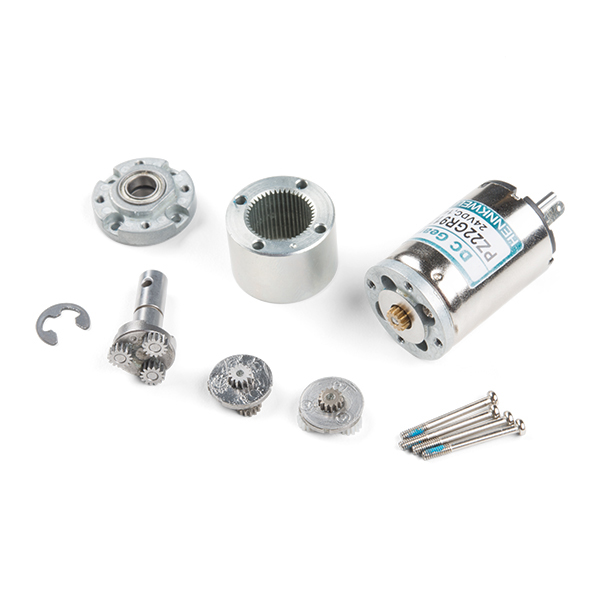

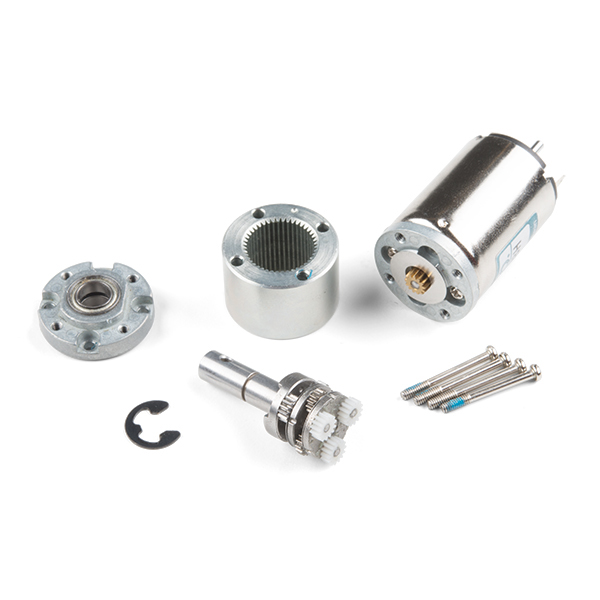
Although the spec sheet doesn't call it out, the depth of the mounting holes are 4mm.
Somewhat pedantic, but the description reads: "The supply voltage range is 6VDC - 24VDC with the polarity maker.." Should say "marker not maker. Missing an R.